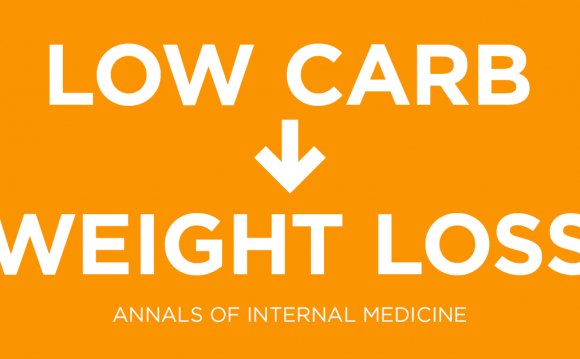
 January 16, 2015
January 16, 2015
It’s officially 2015, the New Year is upon us and with it many resolutions to lose weight and get into shape. With so many magazines and websites filled with latest fad diets, how do you know what diet really works best? The good news is the scientific research is actually quite clear with respect to the ‘best diet’ for not only promoting fat loss but also improving your overall health.
A low-carb diet (LC), or its cousin the very low-carb ketogenic diet (VLCK), are head and shoulders above the rest when it comes to promoting weight loss and upgrading your health. A low-carb diet is typically classified as a diet consisting of 100g of carbs or less per day, whereas a very low-carb ketogenic diet is generally 50g of carbs or less. (It’s called a ketogenic diet due to the ketone body by-products produced when the body switches over to primarily fat- burning for fuel.)
Practically, adopting a LC or VLCK diet entails decreasing your intake of starchy carbohydrates while increasing your consumption of tasty lean proteins, healthy fats, nutrient-dense veggies and whole fruits.
For some this might be a whole new approach to eating, for others something you’ve experimented with in the past. How do low-carb and very low-carb ketogenic diets work to promote weight loss? There are numerous physiological mechanisms at play. Let’s take a closer look.
A low-carb diet dramatically improves your blood sugar control and the function of your blood sugar hormone insulin. After you eat a meal, insulin’s job is to get the sugars from your bloodstream into your cells. The more overweight or out of shape you are, the greater the amount of insulin your body produces to get the job done. This leads to higher insulin levels in the blood, which directly blocks your capacity to burn fat via the hormone sensitive lipase (HSL) enzyme. This person would be called insulin insensitive and if the condition persisted they would eventually become insulin resistant and develop type-II diabetes.
This person would be called insulin insensitive and if the condition persisted they would eventually become insulin resistant and develop type-II diabetes.
How does this relate to carbohydrates? Carbohydrates exert the greatest impact on your insulin output, therefore by reducing your carb intake (and increasing your consumption of healthy proteins and fats) you’ll improve your body’s insulin sensitivity or efficiency at shuttling the food you eat into your cells where it can be used for energy.
A recent meta-analysis in the British Journal of Nutrition of 1, 400 people adopting a very low-carb diet showed significant reductions in bodyweight, as well as lower triglycerides and improved good HDL cholesterol. Another study in the New England Journal of Medicine of 322 obese patients revealed that the low-carb group on an unrestricted calorie diet lost more weight than subjects on a calorie-restricted low fat diet, or a Mediterranean diet. The beauty of a low-carb diet for weight loss is that you don’t have to bother counting calories and you’ll still see results.
It’s not just the hormone insulin contributing to all the positive outcomes. Low-carb diets increase your body’s satiety signals via the increase in protein consumption and improved efficiency of the satiety hormone leptin. Low-carb diets also trigger greater lipolysis – the breakdown of body-fat – as your body shifts to burning fat as a primary fuel source. There is also an increase in the metabolic cost of producing glucose (gluconeogenesis) when on a low-carb diet, which requires your body to burn more energy and translates into a slimmer waistline and better health for clients.
A Paleo dietary approach fits perfectly with a low-carb or very low-carb ketogenic diet due to the inherently higher intake of lean proteins, healthy fats, and abundant vegetables. The natural elimination of grains on a Paleo diet quickly and easily reduces your total carb intake (although it’s important to remember that not all Paleo diets need to be low-carb, particularly in athletes). The goods news is you’re replacing the nutrient poor starchy grains with nutrient-dense veggies and fruits. This promotes not only superior weight loss but better overall health.
The latest research shows a low-carb diet also comes with a myriad of other health benefits, such as; improved blood pressure, triglycerides, cardiovascular health, cognitive function, and reduced inflammation. These are profound and dramatic changes that stem from simply eating more in-tune with how your body has evolved. (Not even best drugs in the world could improve these parameters so significantly!)
INTERESTING VIDEO












